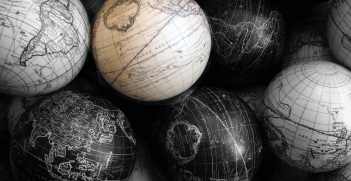What if Meng Wanzhou had Transited from Australia?

Australia’s antagonism towards China threatens to derail the bilateral relationship.
Suppose Ms Meng Wanzhou, the CEO of Huawei had been transiting from Sydney or Melbourne instead of Vancouver on 1 December 2018. Would she have been detained by the Australian Federal Police to trigger an incident similar to the current stand-off between Canada and China?
The answer to that hypothetical question reveals close parallels between Canada and Australia, which are both members of the Five Eyes intelligence network. Since Donald Trump took office in early 2017, the uncertainties and surprises unleashed from the Oval Office are often so consequential that US allies regularly go to great lengths to demonstrate their commitment to America. In Australia’s case, the so-called “100 years of mateship” creates a bond that would make one assume the Yankees had shared the trenches with the diggers in Gallipoli.
Much of the anti-China hysteria we have been bewilderingly witnessing in Australia can be interpreted as an attempt to demonstrate Australia’s commitment to that century-old bond. Similar to Canada’s detention of Meng, in a number of cases Australia has outdone the United States in provoking animosity against China. Australia was the first state to ban Huawei from participation in the 5G network. Immediately after his acting minister for home affairs announced the embargo, then Prime Minister Turnbull called President Trump to flaunt Australia’s zeal in siding with America’s policy of China-containment. Australia published its Foreign Policy White Paper before America’s National Security Strategy in 2017. The Australian White Paper went all the way to promulgate the geopolitical construct of the Indo-Pacific, while the US document only later adopted the initiative taken down under.
Australia has indeed become an anxious nation, alert and suspicious, neurotically looking China’s way, ready to bash the panda. Any incident can be deemed a conspiracy, be it in an Australian university, with a business investment initiative, or in the Pacific islands. Lamentably Australia is no longer the happy, carefree country that the world is familiar with.
Australia is not even in the route of China’s Belt and Road initiative. The 21st Century Maritime Silk Road goes only as far as the Southeast Asian countries, not to Australia. Australia and its neighbouring countries and regions are in the area called “the natural extension of the Maritime Silk Road.” However, Australia appears to fear an imminent Yellow Peril, or Red Peril. The ban on Huawei was based on the conjecture that China would use its equipment and infrastructure to carry out wireless spying activities on the Internet users in Australia.
In 2014, when Chinese President Xi Jinping gave his speech to Australia’s parliament, he said he would soon be visiting Tasmania and therefore would have visited all states in Australia. He joked that he should get a certificate for that. In 2017, the former Australian PM Malcolm Turnbull invited the visiting Chinese Premier Li Keqiang to watch an Australian Rules Football game between the Sydney Swans and Port Adelaide. Li was draped with the scarves of both teams. After the game he remarked that although the scarves made him feel so hot, he could feel the warmth of our friendship from them.
Gone is such warmth and jocular friendship. Common distrust has damaged a decade-old friendship that has benefited both countries economically, socially and culturally and promoted stability and prosperity throughout the region.
Returning to the question: “would Australia have detained Meng Wanzhou if she had chosen to pass through Sydney?” Very likely, and that would have been disastrous to the already rickety bilateral relations.
Thankfully Australia-China relations seem to be heading towards recovery. Scott Morrison’s conciliatory steps have been interpreted as different from his Trudeauian predecessor. Subserviently following America’s China-containment policies has done Australia no good, and no good will come of it in the years ahead. Damaging the bilateral relations will boomerang, creating unsalvageable harm to Australia, which no sane person would want.
The year 2019 is crucial for Australia, with the federal election likely to bring in a new government. China has no partisan preference, but looks forward to steering the bilateral relationship on a new positive and constructive course.
Professor Chen Hong is Director of Australian Studies Centre and Executive Director of Asia Pacific Studies Centre of East China Normal University in Shanghai.
This article is published under a Creative Commons Licence and may be republished with attribution.





